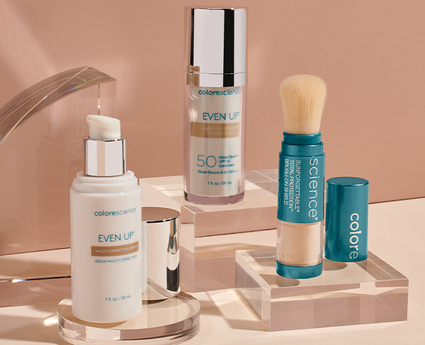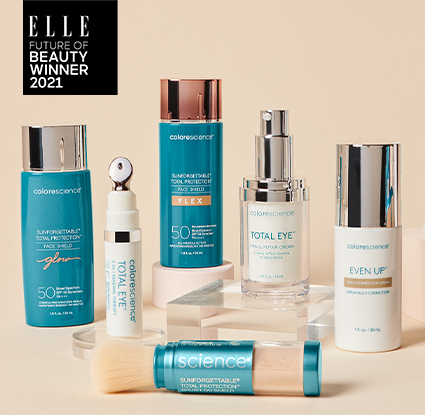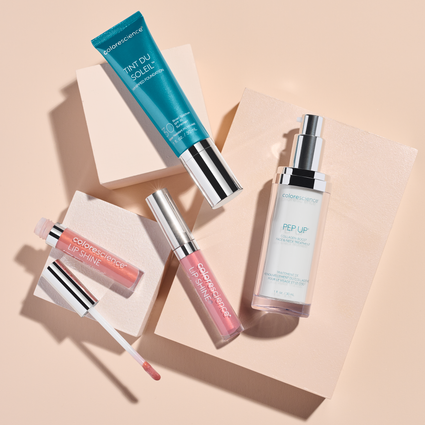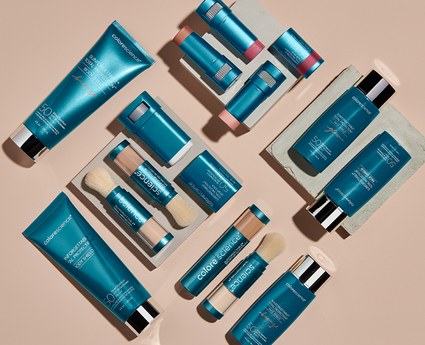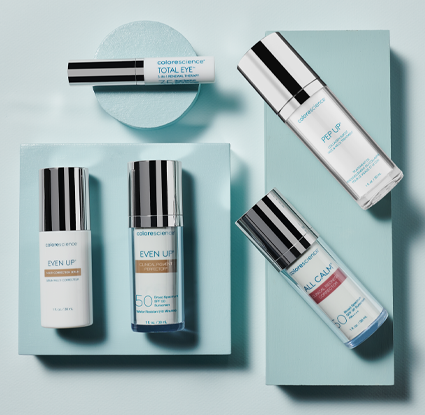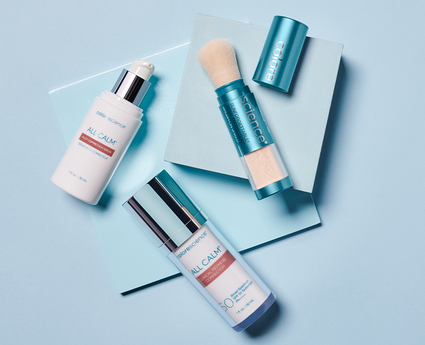Dermatologist-Recommended Skin Care: 4 Tips to Improve Your Routine
Have you ever wondered why your skin is not looking the way you want it to? Or why do your products always seem to stop working after a few months? Here’s the deal: You are not alone. Many people, in fact, probably everyone, has pondered these same questions. However, your skin is a crucial part of your body to understand and finding the right products to take care of properly is essential.
In this post, we’ll talk about some dermatologist skin care recommendations and help you find solutions that work for you—not against you. After reading this, you should feel a weight lifted off your shoulders and more confidence in understanding your skin type and picking the best products. Keep reading or use the links below to learn more about how to improve your skin care regimen.
- What Does Dermatologist-Recommended Skin Care Mean?
- Dermatologist-Recommended Skin Care Tips
- What You Need to Know About Selecting the Right Skin Care for You
- Is Colorescience Dermatologist Recommended?
- Our Skin Care Solutions
- Refine Your Skin Care Routine
What Does Dermatologist-Recommended Skin Care Mean?
When you’re looking for new skincare products to use, you may be confused by the verbiage on the packaging. Some products may state dermatologist-tested while others say dermatologist-recommended. It’s important to note the significant difference between these two terminologies.

To start, dermatologist-tested means a dermatologist has studied and tested a product for days or weeks and has enough evidence to identify which skincare the product would work best for.
In comparison, dermatologist recommended skincare typically means that dermatologists have been asked or surveyed about whether they would recommend this product to a group of people and not individually. It doesn’t mean they’ve tested it. A common example of skin care recommended by dermatologists is sunscreen because it is more or less universally accepted that people should implement it in their daily routine.
Therefore, depending on your skin condition, it’s best to ask your dermatologist if ‘dermatologists recommended skincare products’ are suitable for you. Although it may be best for a general group of people, it may not suit oily, dry, or other skin types.
Dermatologist-Recommended Skin Care Tips
Now that we understand the true meaning of dermatologist-recommended skin care let’s dive deeper into some of these solutions.

Cleanse and Moisturize Every Day
Although this may seem like a crystal clear recommendation; you may want to consider cleaning and moisturizing your skin every morning and night. Your skin goes through a lot every day—it’s exposed to UV rays, pollution, blue light, drying weather, and so much more—so it’s wise to give it some TLC by cleansing the dirt and debris away.
Cleaning your skin doesn’t need to be complex:
- Find a product suited for your skin type.
- Apply gentle motions to rub the product into your skin—take care not to scrub too hard, which we know can be tempting, but it can cause more harm than good.
- Use lukewarm water to rinse the cleanser and debris away.
Don’t stop there though. At the top of the list of dermatologists’ recommended skin care tips is using moisturizer as one of the main steps in your daily regimen. Some may look at moisturizer and assume it leads to oily skin and breakouts. However, moisturizer is a highly reputable product and there are plenty of different varieties for different skin types to try. It hydrates the skin, but it helps protect your skin from weather conditions.
You may want to look into having a morning and evening moisturizer—usually daytime moisturizers are lighter—for the most benefit.
Apply Sunscreen
I’m sure you were told to always apply your sunscreen while growing up even if you felt like you didn’t need it. Now that you’re older, it might make more sense why sunscreen is highly recommended. Sunscreen can protect your skin from UV rays, sun damage, skin cancer, premature aging, and sunburns—all of which is essential to your health and overall well-being. The American Academy of Dermatology Association recommends water-resistant, broad-spectrum sunscreen with SPF 30 or higher for the best protection.

If you are like most people and struggle with stubborn acne, sunscreen may also improve your skin. When you are looking for a sunscreen to help acne, you may want to consider fragrance-free and lightweight products that are less likely to clog pores. This can help reduce inflammation and the severity of acne.
Additionally, some sunscreens are made with niacinamide, which helps fight skin cancer—specifically melanoma—and strengthens skin. Although it is not required, you may want to look for sunscreen with niacinamide to protect your skin better.
Don’t Forget Your Daily Dose of Vitamin C
Another dermatologist recommended skincare product is Vitamin C. Yes, this is a vitamin you can take but it is also a highly encouraged skincare product to apply in the morning. With the same effect, Vitamin C acts as an antioxidant, aiding to block harmful oxidizing agents from fully entering your skin. Applying Vitamin C followed by sunscreen is one of the best ways to protect your skin from damaging rays and particles.
Makeup and Skincare
For those who enjoy wearing makeup daily or every now and then, it’s important to understand how vital it is to remove your makeup at the end of the day.
We get it, there are days where you’re extremely exhausted and feel as though you can fall asleep instantly, but it’s worth taking those few extra minutes—trust us, your skin will thank you later. Taking off your makeup and thoroughly cleaning your skin before hitting the sheets is one of the best ways to ensure your pores don’t get clogged. Not only that, but when you wake up in the morning, you won’t have to worry about taking off old, flaky makeup.
Of course, sometimes we may have our slip-ups and accidentally fall asleep, and that’s okay, but removing makeup is a great habit to prioritize.
What You Need to Know About Selecting the Right Skin Care for You
As stated earlier, depending on your skin type or your skin’s current condition you may want to reach out to a dermatologist or certified professional to provide you with product recommendations tailored to your needs.

You might be wondering: what skin type do I have? If you are hesitant or unsure, let’s dive into the common categories.
Oily Skin: Some people have naturally oily skin, while others may develop oily skin depending on the season. Either way, oily skin appears ‘greasy’ or ‘shiny.’ This happens because your body is producing too much sebum, a natural moisturizer and protectant layer. When you produce too much of this substance, your pores can easily clog, leading to a shiny appearance. Overproduction of sebum is often due to a hormonal imbalance, but it is best to ask a professional if you are experiencing this.
Dry Skin: On the contrary, dry skin is often seen as dehydrated skin. Luckily dry skin tends to be simple to combat. With a dermatologist-recommended skin care moisturizer, gently washing your face, or using a humidifier, your skin will likely hydrate. If you do not take care of your dry skin, it can lead to redness, itchiness, or eczema. Some may have recurring dry skin during the hotter months because of air conditioning or the sun. Avoiding sunburn by wearing sunscreen can also help with dry skin.
Combination Skin: A combination skin type is a mix of dry and oily skin. One way to describe this is by looking at your T-zone. Your T-Zone spreads from your forehead to the tip of your nose, down to your chin, essentially forming the letter T. If you notice your skin is oily there but dry on your cheeks or other areas, you may have combination skin. Since combination skin is fairly common, many products are available.
Generally, it’s encouraged to avoid products with fragrance or alcohol as it can irritate both the dry and oily parts of your face. If you don’t know where to start, you may want to consider looking for dermatologists skin care recommendations on products for combination skin. This will likely include some acidic products, toners, and various cleansers.
Sensitive Skin: Having sensitive skin may appear to be the most aggravating skin condition because you tend to be more selective about what products work for you. If a product doesn’t work well with your skin, it will typically burn, itch, or turn red. However, sensitive skin is manageable. After speaking with a dermatologist, they will likely recommend products with oils and ingredients to soothe and heal your skin. For example, they may recommend products using the bisabolol ingredient because it is non-toxic, soothing, safe, and typically used for all skin types.
If you decide to travel or stay the night somewhere else, you may want to consider bringing your skincare products, so you don’t have to worry about someone else’s skincare options irritating your skin.
Normal Skin: Having a normal skin type is a general term for a skin type that’s generally considered the happy resting place for your skin. Your sebum levels will be well-balanced to know if you have normal skin. You won’t have too much oil in your T-zone, no flaky or dryness around your cheeks and forehead, and your skin type will not react to most products. You may be wondering: what products do I use on normal skin? Generally speaking, most products are made for normal skin.
Keep in mind that no matter what skin type you have, it’s still encouraged to see what a dermatologist recommends for you.
Is Colorescience Dermatologist Recommended?
You may be wondering, after learning this much about dermatologist-recommended skin care products, is Colorescience dermatologist-recommended? Absolutely! Colorescience is based on the foundational stepping stones of using natural minerals, antioxidants, and botanicals. Colorescience avoids chemicals resulting in healthy long-term skin.

With award-winning products, Colorescience has a collection of eye cream, sunscreen, and other products that you may want to consider trying for yourself. If you’re just beginning your skincare journey, having dermatologist-recommended skin care products is great.
With the help of Colorescience’s dermatologist-recommended products and natural ingredients, you can take your skin care to the next level.
Our Skin Care Solutions
Now that we have addressed various skin conditions and commonly used dermatologist-recommended skin care, let’s look at some of Colorescience’s solutions.
- All Calm® Multi-Correction Serum: This serum can be used to treat sensitive skin, providing hydration, softness, and moisture to your overall skin. In addition to restoring your skin, it can also reduce redness or any irritation.
- Total Eye® Concentrate Kit: If you ever want to find an extremely powerful eye cream, this could be for you! This eye concentrate kit is best to apply every morning to firm, repair, concentrate, and hydrate the sensitive area around your eyes.
- Even Up® Multi-Correction Serum: With clinically-proven results, this serum provides hydration, smooths out your skin's texture, and lessens the appearance of dark spots and other discoloration.
- Total Eye® Firm & Repair Cream: To improve your skin’s barrier around your eyes, this firm and repair cream is tested to provide firm, smooth, and hydrating skin under and around your eyes.
- Even Up® Clinical Pigment Perfector®: This lightly tinted 3-in-1 formula helps blur and diminish stubborn spots and discoloration. This product also includes SPF 50 and is water-resistant.
- Mineral Sunscreen: This award-winning sunscreen comes in various options including classic liquid, easy-to-use stick, and convenient brush-on applications. That way, your skin can be protected against the harsh UV rays at all times. With the multitude of options available, this chemical-free, mineral-based sunscreen is easy to apply no matter where you are or what you have planned.
Refine Your Skin Care Routine
After learning the difference between dermatologist recommended and dermatologist tested, what to consider depending on your skin type, and the various solutions available to you, we hope you feel prepared to tackle your new skincare regime. It might take time to perfect your routine but don’t sweat it, you’ve taken a great first step. Now you just have to find the right skin care products for you!
With the help of Colorescience’s award-winning and clinically proven products, you can care for and protect your skin with confidence from how you moisturize to how you guard your skin against the sun. Shop Colorescience today to make sure your skin is getting the high-quality treatment it deserves.

